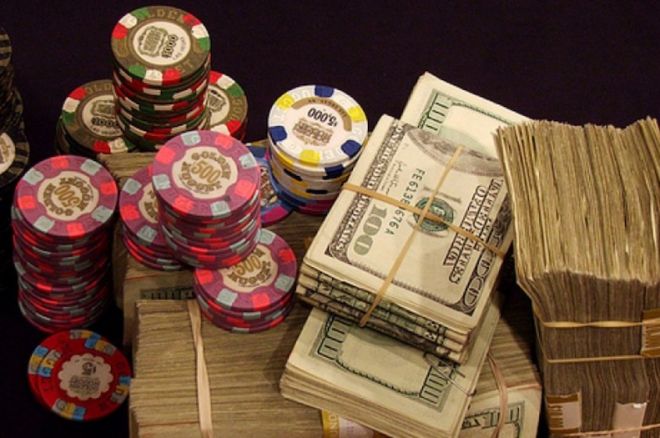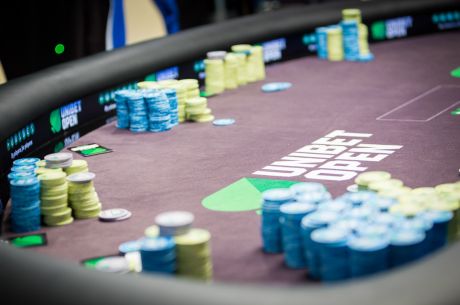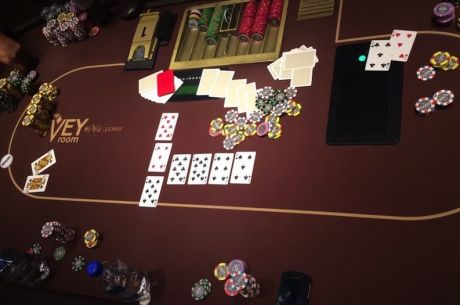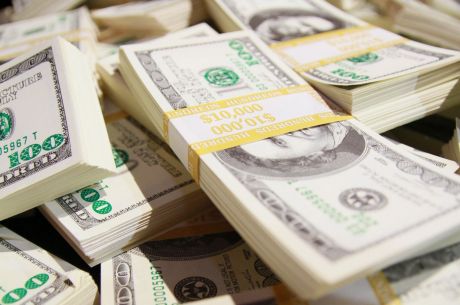7 Things You Need to Know About Playing with Cash on the Table

At the end of last week, word came that MGM Resorts, one of the largest casino companies in the world, will be banning cash from playing at the tables in its poker rooms effective April 1, 2015. The change will happen at many properties, including in Las Vegas at the MGM Grand, the Aria, the Bellagio, the Luxor, Mandalay Bay, and others.
The news prompted me to reflect on how cash differs from chips in what we somewhat imprecisely refer to as “cash games” in poker. I came up with a list of seven things you should keep in mind when in comes to casino poker games with actual cash in play.
1. Rules vary, so be sure you know what’s allowed
I have played in some casinos where no cash was allowed in play, some where any cash — including down to $1 bills — was allowed, and some with an in-between rule. Perhaps the most common example of the latter is that $100 bills are the only currency permitted. The only way to know is to ask the dealer before you try to add cash to your chips.
2. Dealers may not notice cash
I remember an incident from the Imperial Palace poker room in Vegas. At the time, no cash was allowed in play there, though I didn’t know that rule when this happened.
In one hand, I missed a flush draw but rivered a small pair. I checked. My opponent moved all in — he had a single $1 chip and a single $100 bill, both of which he pushed forward. The bill had been sitting in front of him for several hands at least, but the dealer had failed to notice it until this moment. He informed the player that the bill was not in play, so the all-in bet was only $1.
The floor was called and made the same ruling. The player was livid. I called his $1, though I was about 99% sure I was losing. He had the nuts — a straight. He was ranting about how he was being cheated out of $100. I reassured him that $1 was just about the most I would have called, so the error actually made him an extra dollar that he otherwise would not have gotten, because if his bet had been $101, I would have folded. That calmed him down.
Another time at the Venetian, I noticed that a player had a stack of $20 bills sitting behind his chips. I don't know how long they had been there before I spotted them. I waited until the hand was over, then told the dealer, “We should probably get clarified whether that cash is in play.” The dealer, too, had failed to notice whenever it was that the player had added the money to his stack. He got it changed for chips, and all was well.
If you see another player with cash that you think might not be allowed by the house rules, always ask the dealer to clarify the situation.
3. Beware of bills folded up
Many players fold up their paper money and tuck it under their chips, or keep the bills vertical, hidden behind their chip stacks.
Some are doing this innocently, just to get the money out of the way, not realizing that this can make it hard for others to judge visually how much they have in play. But some do it deliberately, exactly for this reason. They are angle shooters. They hope to get you to underestimate how much they have in play, so that if you call their all-in bet, you’re committed for a lot more money than you thought.
If you notice that another player has bills behind or under his or her chips — in such a way that they are not easily visible — you can and should politely ask the dealer to help the player arrange the cash so that it is readily apparent to all.
4. Players “rathole” cash more than chips
Once in a while you’ll see a player take bills off of the table, otherwise known as “ratholing.” Most often, this is an innocent mistake made by somebody who doesn’t understand casino rules. It is most likely to happen immediately after such a player wins a big pot that contains both chips and cash. Keep an eye on the bills, and if you see them being taken off the table, be sure to point it out to the dealer so that he or she can explain to the player how table stakes work.
Other players, however, do this with full knowledge that it’s against the rules. They want to lock up a profit rather than keep all of their winnings in play, and it seems easier to slip a few bills off of the table than chips. If you notice that a player who once had several bills in play suddenly doesn’t, again, let the dealer know so the situation can be investigated.
5. It’s easy to misjudge the size of your own stack
I have made this mistake more often that I’d like to admit. I’m so used to counting chip stacks, that my brain somehow completely ignores the $100 bills sitting right next to the chips.
Because I know that I’m prone to this visual error, I try whenever possible to trade in cash for chips. You might consider doing the same.
6. People react differently to bets made with cash than with chips
One of the most famous hands from the old High Stakes Poker TV show was when Brad Booth bluffed Phil Ivey off of pocket kings with 4♠2♠. Memorably, he did it by placing into the pot three bricks, each consisting of one thousand $100 bills, while Ivey had roughly $250,000 in chips in his stack. Take a look:
Notice at about the 2:35 mark of that video clip, Ivey, pondering whether to call, says, “I wish you’d put the chips in. The cash just looks so sweet.”
The implication is that he is more tempted to call by the cash than he would be by the chips. It’s possible that Booth miscalculated on this point, thinking that the cash was more “intimidating” (as the commentators point out), and should have used chips instead of cash if he wanted to be more likely to induce a fold. But it’s also possible that he knew exactly the effect it would have and used it to his advantage to make it look like he wanted a call, when he clearly didn’t.
Either way, the point is that even a player as experienced as Ivey has a different emotional reaction to cash than to chips. Cash is real, spendable money. Chips are an abstraction. You should keep that in mind as you decide what effect you want to create with your bets.
At the same time, you should not allow yourself to be swayed in your reaction to an opponent’s bet by whether it was made with cash or chips. They are interchangeable, and you should treat them as such.
7. Players protect their cash differently
For the same psychological reason, you’ll often find that players protect the cash portion of their stacks differently than the portion that is in chips. Because of the abstraction element, they find chips easier to bet than cash. Somehow it hurts less to lose chips than to lose the same amount in cash. This is irrational, but common.
You need to watch how opponents bet, because if you’re up against a player who makes this kind of distinction, a bet with cash is much less likely to be a bluff than a bet with chips.
Maybe MGM’s move is a harbinger of things to come, and soon all casinos will adopt a no-cash policy. But until that day arrives, give yourself a strategic advantage by remembering these tips about the ways in which cash differs from poker chips.
Robert Woolley lives in Asheville, NC. He spent several years in Las Vegas and chronicled his life in poker on the “Poker Grump” blog.
Get all the latest PokerNews updates on your social media outlets. Follow us on Twitter and find us on both Facebook and Google+!








